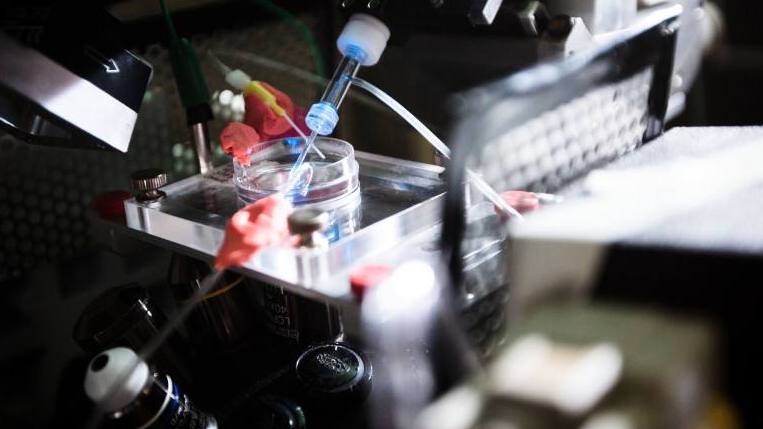-
Featured News
Science Saturday: A ‘gut-feeling’ for high-risk, high-reward research
Arthur Beyder, M.D., Ph.D., runs a research laboratory at Mayo Clinic focused on examining the molecular mechanisms of gastrointestinal function and dysfunction in diseases such as irritable bowel syndrome. His goal is to discover better ways to diagnose and treat these conditions, including individualized treatment options.

the mechanical and electrical properties of sensory cells.
"These conditions affect 10-15 percent of Americans, and it's amazing how much we still have to learn about the molecular mechanisms of these diseases," says Dr. Beyder.
Dr. Beyder believes that the "high risk, high reward" approach may be the best way to go when it comes to tackling this problem. He recently received a 2019 NIH Director’s New Innovator Award, honoring his work as an "exceptionally creative early career investigator," an award given to support the researchers who pursue high risk, high reward research.
What is high-risk, high-reward research?
High-risk, high-reward research is innovative research that pushes the boundaries of science and has the potential for broad impact.
"Incremental questions lead to incremental progress," says Dr. Beyder. "High-risk questions allow us to break away to view the problems in a completely different light or from a different perspective. These approaches allow us to make big leaps forward and often bring true transformation in science and medicine."
"At Mayo Clinic, we're focused on turning scientific discoveries into treatments quickly, so patients can benefit as soon as possible," says Gianrico Farrugia, M.D., president and CEO of Mayo Clinic, and one of Dr. Beyder's mentors. "To achieve that, we need to think big, move fast, and take well-calculated risks. Researchers like Dr. Beyder are helping advance a new mindset that will accelerate innovation."
Read the rest of the article on Advancing the Science.
______________________________________________
Other Mayo Clinic medical research websites:
- Research at Mayo Clinic
- Discovery’s Edge
- Advancing the Science
- Forefront
- Mayo Clinic Center for Individualized Medicine
- Center for Regenerative Medicine
- Center for the Science of Health Care Delivery







